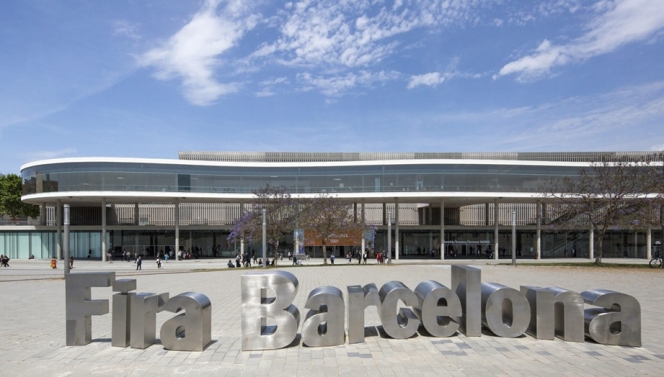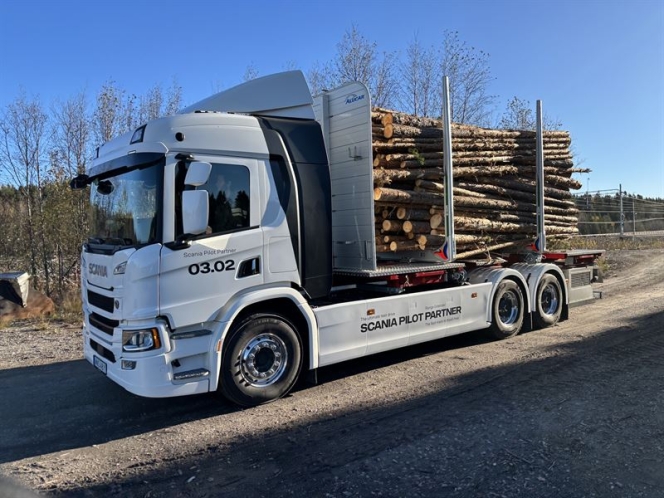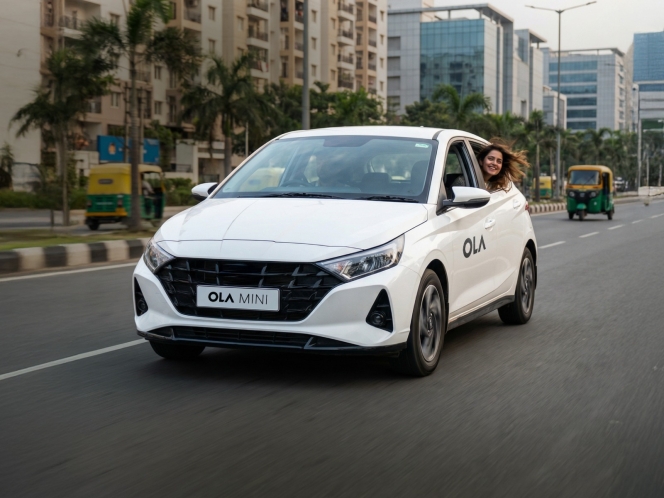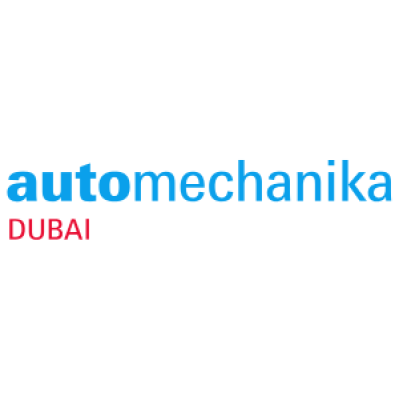Saietta, Padmini Strategic Commercial Collaboration To Pave Way For Future 2W Electrification In India: Padmini VNA MD
- By Sharad P Matade
- June 22, 2021

How did the partnership with Saietta form? Could you elaborate on the role of Padmini in the partnership?
Kabir Bhandari: We were introduced to Saietta around three years ago, and with the evolution of electric vehicles, we see clear synergies between the two companies. The unique Saietta axial flux motor is perfect for Indian two- and three-wheeler applications. It is power-dense, more efficient than the radial flux motors resulting in a longer range with the same battery capacity, completely sealed and develops power and torque at low RPMs, enhancing efficiency and life.
We are excited to bring AFT to India, and we will deploy our expertise in tailoring the motor precisely to the customer’s needs. They are designed specifically for the Indian environment and usage, where the roads are often underwater, potholed and dusty, and the majority of the population uses two-wheelers.
What capabilities will Padmini VNA offer in the partnership?
Kabir Bhandari: Padmini brings competent engineering, the ability to take the motor and build the system around it with the battery module, BMS, motor controller etc. to the table as needed by the customer.
What is the initial volume, and what about the procurement of components to AFT?
Kabir Bhandari: Initial volumes will depend on the uptake of electrification. But we are confident that the country will adopt this technology faster than predicted. The aim is to produce the motor totally in India.
Last year, the company formed a JV with Vitesco Technologies and is now partnering with Saietta. What will be the focus for the next collaborations?
Kabir Bhandari: We are always open and constantly evaluating new ideas. Still, we want to consolidate and strengthen the collaborations we have launched for the next few years and get them to scale profitably.
How will the electrification of vehicles evolve, according to you? How will you cater to the same?
Kabir Bhandari: This question is very difficult to answer as there is a range of projections across the table. As a company, we have ridden many waves of technical change, from horns to emissions, and have negotiated the move from BS to BSVI over the years. This has made us develop our own technology and invest heavily in people and facilities to design, develop and validate. We hold many international patents and will continue to invest heavily in the future. Electrification is a megatrend that cannot be ignored, and therefore we are investing in it.
Could you highlight the current activities around PV Clean Mobility Technologies, the JV between Padmini VNA and Vitesco Technologies?
Kabir Bhandari: Our current focus in the JV is developing high-efficiency fuel pumps for cars and two-wheelers and low-cost actuators for engine applications. Along with our partners, we are also exploring to start working on electrification innovation which will fuel the future growth in coming years for India.
Any plans to extend the partnership with Saietta?
Kabir Bhandari: We believe in long-term relationships, whether it is with the team members of Padmini VNA, the suppliers we work with, the customers we serve, or our partners. We bring the same approach to our partnership with Saietta.
The company is also developing solutions for hybrid vehicles. How do you see the hybrid vehicle market growth?
Kabir Bhandari: Again, there are many expert papers written on this. Hybrids are an excellent compromise between electrification and IC engines, especially for urban mobility with their frequent stop-start nature. It gives large benefits without having to invest heavily in the infrastructure for charging EVs. So, while EVs will be the preferred long-term solution, hybrids are an easy way of getting substantial emission-reduction benefits without big infrastructure changes, so it’s a good stepping point.
What are the challenges in the business?
Kabir Bhandari: To stay technologically relevant and be a supplier that our customers can trust for innovation. (MT)
Battery Passport Implementation Beyond EVs To Be Focus Of Barcelona Event
- By MT Bureau
- December 03, 2025

Battery and Energy Storage Europe has announced a programme focused on the EU Battery Passport, a regulatory milestone that becomes mandatory in February 2027. The Barcelona-based event will address the compliance gap for applications beyond the electric vehicle (EV) sector, which have dominated the conversation to date.
The event, taking place on 8th and 9th September 2026 at Fira de Barcelona's Gran Via venue, will focus on solutions and talks for applications that fall within the regulation's scope: stationary energy storage, industrial batteries, grid-scale systems, long-duration energy storage and emerging applications in aerospace, maritime and rail electrification.
With the February 2027 legal requirement date approaching, the programme will bring together industry leaders, technology providers, and policy experts to address the compliance challenges facing these diverse sectors.
The Battery Passport is a digital record documenting a battery's entire lifecycle, from raw material sourcing to production, performance and eventual recycling. From February 2027, it becomes mandatory for all rechargeable EV, industrial and LMT batteries over 2 kWh sold in the EU.
Linked via QR code, the passport will track each battery's complete lifecycle, including composition, carbon footprint and recycled content, fundamentally transforming supply chain transparency and sustainability practices across Europe.
The programme will explore implementation topics including digital infrastructure requirements, data management systems, supply chain integration, verification processes and recycling traceability.
Ken Davies, Conference Programme Director at Battery and Energy Storage Europe, said, "The Battery Passport represents one of the most significant regulatory shifts our industry has faced, yet many companies are still grappling with what implementation actually means for their operations. While the EV sector has dominated the conversation, there's a critical need to address how this regulation applies to stationary storage, industrial applications and the innovative battery technologies powering Europe's energy transition. With the clock ticking toward February 2027, Battery and Energy Storage Europe will shine a light on the practical implementation requirements for these often-overlooked sectors, connecting stakeholders with actionable solutions and bringing together the expertise, technology providers, and collaborative spirit needed to turn compliance into competitive advantage across the full spectrum of battery applications."
- Scania
- Horse Powertrain
- SCA
- hybrid truck
- Aurobay Technologies
- Matias Giannini
- Tony Sandberg
- Ingo Scholten
Scania Selects Horse Powertrain For Range-Extender Truck Pilot In Sweden
- By MT Bureau
- December 03, 2025

Horse Powertrain has been selected by Scania to provide its range-extender system for a pilot vehicle, currently operating as a heavy-duty timber truck in Sweden. The collaboration is a step in testing hybrid powertrain solutions for demanding transport applications such as forestry logistics.
The pilot is part of the Scania Pilot Partner program and is currently operating in Sweden under SCA, one of Europe’s forestry companies.
The vehicle is built to handle Sweden’s timber routes, transporting heavy loads through remote terrain where access to charging infrastructure remains scarce. By combining a battery-electric drivetrain with the generator designed in Sweden by Horse Powertrain’s division Aurobay Technologies, the truck achieves both long-distance capability and reduced CO2 emissions.
The test route covers approximately 16 km, with an operational target of completing 7–8 rounds per day, comparable to a diesel truck.
The configuration supports the truck’s battery packs with a 120 kW range-extender unit based on Horse Powertrain’s 2.0 litre multi-fuel engine. Acting purely as an onboard charger, the unit supplies electric energy when required during long hauls, temperature extremes, or delays.
Matias Giannini, CEO, Horse Powertrain, said, "Forestry logistics represents one of the toughest challenges for electrification. The forest roads of northern Sweden demand strength, range and reliability. Charging stations are few, but the timber never waits. You can think of our range-extender as a powerbank for a heavy-duty truck: silent, efficient, and always there when you need it. By partnering with Scania and drawing on our engineering excellence, we’re proving how a compact, high-efficiency range-extender enables electric trucks to operate reliably in the most demanding environments. It’s a technology that cuts CO2 now.”
Tony Sandberg, Vice-President at Scania Pilot Partner, added, "What we’re doing in Sweden with Horse Powertrain and SCA builds directly on the 100-day trial we ran together with a logistics partner in Germany earlier this year. That vehicle logged almost 22,000 kilometres and drove more than 90 percent of the time on pure electric power, only using the range-extender when no charging was available. The result was a CO2 reduction of over 90 percent compared with a diesel truck. Those learnings give us a strong foundation as we tailor the system for demanding Nordic timber operations."
Ingo Scholten, Chief Technology Officer, Horse Powertrain and Managing Director Sweden, Aurobay Technologies division, said, “Electrifying heavy-duty routes means understanding what drivers and operators face hour by hour. Long stretches without charging, variable loads and rapidly changing weather. This pilot lets us study those realities directly in day-to-day timber operations. The range-extender’s role is simple. Provide a stable, efficient energy supply so drivers can complete their full shift without interruption and with far lower greenhouse-gas emissions than a traditional diesel truck. The data we gather here will guide how we refine the technology and scale it for wider use across demanding transport applications.”
Horse Powertrain’s modular range-extender architecture builds on the core technology used in its passenger-car and light-commercial hybrid systems, adapted for the higher power output and durability demands of heavy-duty applications. Unlike conventional fixed-speed generator sets, the engine can operate across its full power band, allowing the system to deliver the required output efficiently while keeping fuel consumption, noise and vibration low.
The pilot truck is now undergoing testing in regular operations, carrying full timber loads to gather performance and efficiency data in real-world conditions. The results will guide future deployments of electrified powertrains in the forestry sector and other heavy-duty applications.
Maruti Suzuki Launches One India, One EV Charging Platform
- By MT Bureau
- December 03, 2025
Maruti Suzuki India, the country’s largest passenger vehicle maker, is gearing up to mark its entry into the electric vehicle segment with the soon-to-be-introduced e Vitara has announced an EV ecosystem with a comprehensive end-to-end digital platform for charging needs, including home and public charging, with an integrated payment journey.
The company has signed collaboration agreements with 13 Charge Point Operators (CPOs) and aggregators to provide seamless charging experiences on a single platform.
Maruti Suzuki has established a network of over 2,000 exclusive charging points across its nationwide dealer network, spanning more than 1,100 cities. Customers’ charging needs are further supported by the extensive partner-operated all-India charging network.
Aligned with its global vision, Maruti Suzuki will work with its partners to enable more than 100,000 Public Charging Points by 2030.
Hisashi Takeuchi, Managing Director & CEO, Maruti Suzuki India, said, “At Maruti Suzuki, we strive to extend a delightful ownership experience to our customers to build lasting trust. Today, we are taking a historic step, as we enter the domain of electric mobility with full readiness to address the EV charging concerns and boost customer confidence. We have established a robust network of over 2,000 Maruti Suzuki exclusive charging points across our sales and service network, spanning more than 1,100 cities. Further, we have collaborated with 13 Charge Point Operators to offer access to a vast charging infrastructure across the country. Aligned with Suzuki’s global vision, we plan to introduce multiple EVs and to support this, our aim is to enable a network of over 1 lakh charging points across India by 2030, along with our Dealer and CPO partners.”
'E for Me' Digital Platform
The Maruti Suzuki ‘e for me’ EV charging mobile app enables end-to-end usage of EV charging points from partner-operated charging points and Maruti Suzuki’s own network on a single platform.
The app offers a uniform customer journey for EV charging and payment through UPI or exclusive ‘Maruti Suzuki Money’, powered by Razorpay.
The platform's functions include:
- Locate, Pay & Use EV charging points available on the app.
- Use Public and Smart Home Charger from the same app.
- One card for ‘Tap N Charge’ functionality at Maruti Suzuki dealer outlets and home charger.
- Mirror e for me app on the infotainment system for seamless in-car EV charging experience.
- Remotely start/stop and manage the power output of the smart home charger.
Partho Banerjee, Senior Executive Officer, Marketing & Sales, Maruti Suzuki India, said, “Today is the dawn of a new era for electric mobility in India. It gives me immense pleasure to say that Maruti Suzuki is EV ready and will be ‘By Your Side’ with our comprehensive new platform that addresses key concerns around EV charging infrastructure. Leveraging India’s largest dealer network and our charging partners’ network, we are ensuring there are EV charging points at an average distance of 5-10 kilometres at key locations in the top 100 cities of India. DC fast chargers are also located at regular intervals along key highways to enable nationwide driving freedom for our prospective EV customers. To further enhance peace of mind, we have deployed a 1.5 lakh-strong specially-trained EV workforce to cater to every need of our customers. We have also activated 1500+ EV-ready service workshops across 1100 cities for meeting after-sales requirements to support EV ownership in every part of the country.”
To showcase the network readiness, four e VITARAs were flagged off from Gurugram in all four directions – Srinagar (North), Kanyakumari (South), Bhuj (West) and Dibrugarh (East) – as a part of the ‘e drive’.
The e Vitara Born EV, which is ‘Made-in-India and exported around the world,’ has been rigorously tested over 10 million test kilometres. Tested from ‘Sand to Snow’ over a temperature spectrum of 60deg Celsius to -30deg Celsius, the e Vitara has delivered a driving range of 543 km.
Banerjee added: “Words aside, we are showcasing the prowess of this platform by flagging off a radical ‘e drive’ that will demonstrate the real-world efficacy of Maruti Suzuki’s comprehensive EV charging network. With the ‘e drive’, we aim to boost user confidence and execute faster EV adoption, working alongside the nation’s sustainability goals for net zero.”
Ola Intros Non-AC Cab Options On Its Platform Across India
- By MT Bureau
- December 02, 2025

Bengaluru-based ride-hailing company Ola Consumer has launched its non-AC ride category across India, becoming the only player in the country to offer this option at scale.
The company stated that the goal is to offer customers maximum choice across various price points to meet their travel needs. The new category will also enable cab drivers to have lower fuel consumption and improve their earnings.
Ola Consumer spokesperson said: “With the non-AC category, we’re pushing the boundaries of how affordable and accessible urban mobility can be in India. Millions of people rely on daily, value-driven transport, and this offering is built entirely around their needs. The early response has been incredible and shows how strongly India wants more transparent, flexible, and fairly priced mobility. This move marks a step ahead in our mission to rethink mobility in India, and make it truly inclusive for every consumer.”






Comments (0)
ADD COMMENT